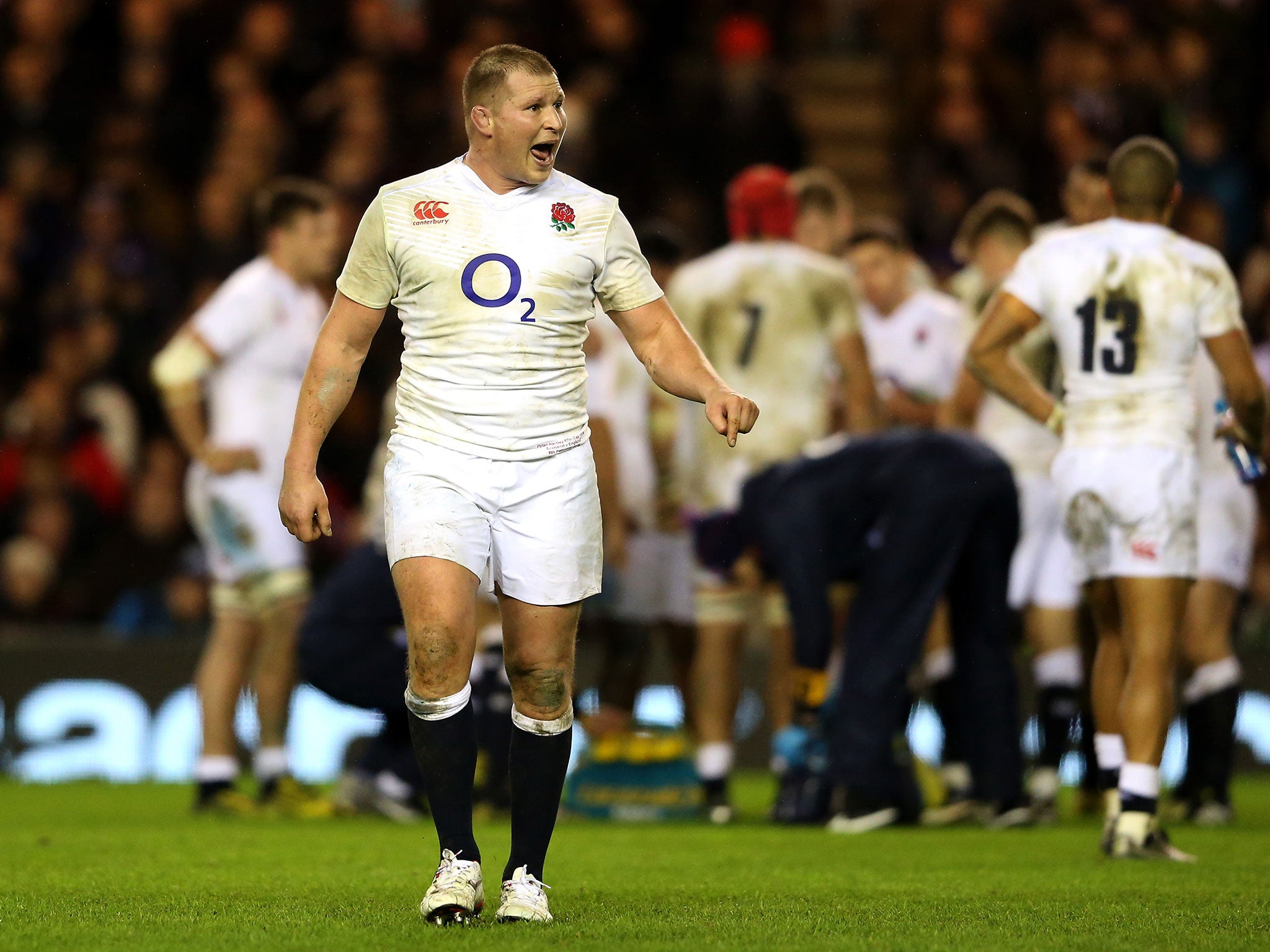Scotland vs England: Red rose served well by Dylan Hartley’s authority
New skipper defies the hype with an assured – and restrained – display, writes Michael Calvin

Dylan Hartley failed to live up to the advance publicity which suggested he would ritually slaughter the first born of an unfortunate Edinburgh family. He was as potent a threat to public order as a postmistress. The freshly-minted halo stayed firmly in place.
He merely got on with his new job, as England rugby captain. Hartley exuded a quiet authority, answering those who expected him to rely on eyeballs-out aggression. His style was surprisingly subtle and consensual. So much for the rabble-rousing caricature.
He lasted until four minutes from the end, when he made a point of shaking the referee’s hand before making way for Jamie George. Others made a more dramatic impact – man of the match Billy Vunipola was a flesh and blood version of a two ton truck – but his leadership skills were self-evident.
“It wasn’t the prettiest,” he acknowledged as he came to terms with the unfamiliar chore of an immediate post- match TV interview. “There are a few sore bodies, but we’re happy to get the result. Look, we’ve only had two weeks together. There is so much to improve on.” Tellingly, he deflected questions which attempted to personalise a collective achievement. He spoke of winning as a team, and limited himself to the observation that the honour of leading the team out was “huge”.
Hartley was quietly efficient. He hit his mark in the line-out, struck the ball cleanly in the scrums, and played the role of peacemaker when Owen Farrell sparked a brief burst of handbag-swinging by pushing Greig Laidlaw across the touchline as England applied a stranglehold on the game in the closing stages.
He even found himself on Jack Nowell’s shoulder when the Cornish winger’s 51st minute try in the corner gave England much needed breathing space.
It was a typical Calcutta Cup contest; frantic, fervent and compellingly imperfect. It featured more turnovers than a Women’s Institute baking competition, but the errors merely added to the spectacle. Some of the distress signals were tiresomely familiar to anyone who watched England’s autumnal collapse. Hartley’s personal discipline was impressive, apart from a brief outburst which led to the referee’s order to calm down, but England’s collective indiscipline resulted in the concession of avoidable penalties.
The front row features rugby in the raw. No one sees the epicentre of the earthquake, but everyone understands its consequences. The intensity of the hidden battle is indicated by the body count, and seismic collisions are felt, keenly. With England’s forwards expected to set the tone for the stark aggression of the Eddie Jones era, Murrayfield was a bearpit. Though the World Cup proved the Six Nations is a second-tier competition, it certainly didn’t feel like it.
The TV cameras could not avert their electronic gaze from England’s new head coach (pictured left), who mumbled an unfamiliar national anthem and looked, more than ever, like an impudent goblin. The schoolmaster has been replaced by a scuffler, whose emotional engagement was difficult to detect as he calmly passed instructions through his headset.

He was looking for mental strength, for men inspired by the taste of blood in their mouths, and the sense of imposing order on chaos. He will surely, in time, silence the crass burbling of England’s social media account with its juvenile exhortations to #scrumtogether.
England’s squad under Stuart Lancaster had a boy scout’s earnestness and a missionary’s purity of purpose. Jones, by contrast, rather admires the naughty boy who flicks ink pellets from the back row of the classroom.
The initial signs, from covert combat, were good. The England scrum stood square and strong, providing the opportunity which enabled George Kruis to burrow through missed tackles for the opening try. Hartley’s understated approach was typified by his consoling words to George Ford when he conceded a kickable penalty, which was surprisingly missed by Greig Laidlaw. As a former hooker, Jones knew what he was watching. He was suitably impressed.
“It was a difficult game for him as captain, but he did really well,” the new coach said. “Our set pieces won us the game. The line-out was very good and the scrum came to life.” When he referred to England demonstrating “composure under pressure” he could have been speaking about Hartley, the beast who has been housetrained, if not be tamed.
Join our commenting forum
Join thought-provoking conversations, follow other Independent readers and see their replies
Comments
Bookmark popover
Removed from bookmarks